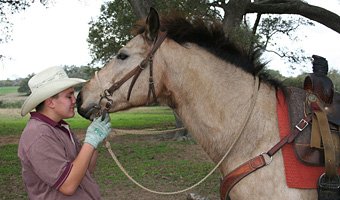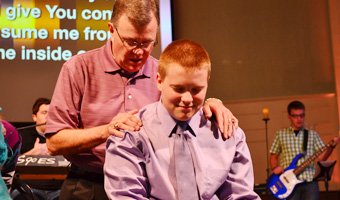Church finds mission of compassion by remembering Jesus, ethicist says
DALLAS—When Christians read and interpret Scripture together, it calls them to remember the story of Jesus, who transforms the church into a community of moral discourse and calls its members to lives characterized by compassion, ethicist Allen Verhey said.

Allen Verhey
|
Verhey, professor of Christian ethics at Duke Divinity School, addressed the relationship between the Bible, community and the moral life in his remarks to the Texas Baptist Christian Life Commission conference at Wilshire Baptist Church in Dallas.
"Without remembering, there is no identity. In amnesia, one loses one's self. In memory, one finds an identity. And without common remembering, there is no community," he said.
Remembrance enables the church to make sense of the present and nurture hope for the future, Verhey said.
But proper interpretation of Scripture and what it means to the church today demands discipline and discernment. It means being able to see the big picture of Scripture and interpret its parts in light of the whole story, he noted.
"Discernment is learned and exercised in the community gathered around the Scripture, and it involves the diversity of gifts present in the congregation," he said.
"Discernment requires a dialogue with the whole church gathered around the whole of Scripture. It requires reading Scripture with those whose experience is different from our own and whose experience of the authority of Scripture is different from our own. It requires a dialogue in which people listen both to Scripture and to one another, muting neither Scripture nor one another."
As communities of moral discourse, churches discuss not only what they ought to do, but also why they ought to do it, he added.
"A prescription or prohibition lifted from Scripture may be and must be tested and accepted or qualified or rejected by the discernment of the community gathered around Scripture and exercising discernment. Reasons are given and heard in the community, but any and all reasons must finally be tested in the community and defended, discarded or qualified by their coherence with the gospel," Verhey said.
Rules must be evaluated on the basis of their "creative fidelity to the whole story—the story that has the remembered Jesus at the center of it, he said.
As churches remember Jesus in a world of sickness and suffering, they must respond to the call to become communities of compassion—communities that suffer with and alongside others, Verhey said. He contrasted genuine compassion with a modern "counterfeit compassion" that insists suffering should be eliminated, not shared.
"The modern compassion is formed of the expectation that the world should be—right now—the sort of place where suffering can be avoided, where we need not suffer for anything or with anyone," he said.
Modern medical technology too often leads the church to surrender sufferers to the care of professionals, Verhey said.
"At the very least, communities of faith will not neglect their obligations to visit the sick or abandon the sufferer to the technical experts," he said.
When people encounter pain, they often are struck mute by their suffering, he observed.
"In response to this first phase, a wise compassion practices silent and empathetic presence," Verhey said. "The compassionate practice of presence provides a first and fundamental break with the desolating isolation of suffering."
In time, Christians can help sufferers name their pain, find the voice to tell their stories and listen attentively, he said. Eventually, the church can help sufferers write their next chapter—provided Christians exercise a compassion marked by wisdom, piety, humility and courage.
"Suffering is always individual. It differentiates—and it alienates," Verhey said. "Compassion, on the other hand, is always communal. It shares, and it unites."








